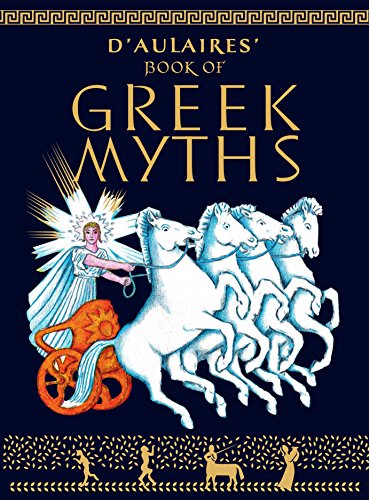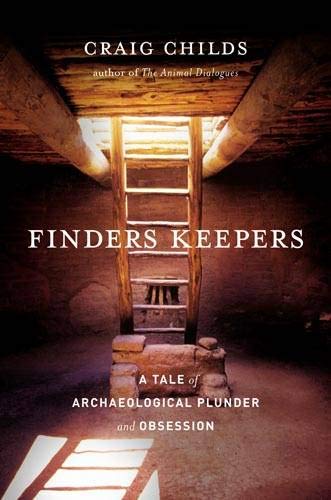Top products from r/Archaeology
We found 21 product mentions on r/Archaeology. We ranked the 69 resulting products by number of redditors who mentioned them. Here are the top 20.
1. A History of Archaeological Thought: Second Edition
Sentiment score: 1
Number of reviews: 2
Cambridge University Press
 Show Reddit reviews
Show Reddit reviews2. The First Human: The Race to Discover Our Earliest Ancestors
Sentiment score: 0
Number of reviews: 1
 Show Reddit reviews
Show Reddit reviews3. Masks of Exploit: Göbekli Tepe & Pillars of the Pharaoh System
Sentiment score: 1
Number of reviews: 1
 Show Reddit reviews
Show Reddit reviews5. Ships and Shipwrecks of the America's: A History Based on Underwater Archaeology
Sentiment score: 1
Number of reviews: 1
 Show Reddit reviews
Show Reddit reviews6. D'Aulaires' Book of Greek Myths
Sentiment score: 1
Number of reviews: 1
D Aulaire s Book of Greek Myths
 Show Reddit reviews
Show Reddit reviews7. Satellite Remote Sensing for Archaeology
Sentiment score: 0
Number of reviews: 1
Routledge
 Show Reddit reviews
Show Reddit reviews8. Southeast Asia: From Prehistory to History
Sentiment score: 0
Number of reviews: 1
 Show Reddit reviews
Show Reddit reviews10. Gods, Graves & Scholars: The Story of Archaeology
Sentiment score: 1
Number of reviews: 1
 Show Reddit reviews
Show Reddit reviews11. The Greek Stones Speak: The Story of Archaeology in Greek Lands (Second Edition, Revised and Enlarged)
Sentiment score: 1
Number of reviews: 1
 Show Reddit reviews
Show Reddit reviews12. Lives in Ruins: Archaeologists and the Seductive Lure of Human Rubble
Sentiment score: 0
Number of reviews: 1
 Show Reddit reviews
Show Reddit reviews13. Finders Keepers: A Tale of Archaeological Plunder and Obsession
Sentiment score: 1
Number of reviews: 1
 Show Reddit reviews
Show Reddit reviews14. Maritime Archaeology: A Reader of Substantive and Theoretical Contributions (The Springer Series in Underwater Archaeology)
Sentiment score: 1
Number of reviews: 1
Used Book in Good Condition
 Show Reddit reviews
Show Reddit reviews15. Europe Between the Oceans: 9000 BC-AD 1000
Sentiment score: 0
Number of reviews: 1
Yale University Press
 Show Reddit reviews
Show Reddit reviews16. The Cast Iron Forest: A Natural and Cultural History of the North American Cross Timbers
Sentiment score: 1
Number of reviews: 1
 Show Reddit reviews
Show Reddit reviews17. The Human Career: Human Biological and Cultural Origins
Sentiment score: 1
Number of reviews: 1
Used Book in Good Condition
 Show Reddit reviews
Show Reddit reviews18. Ancient Mesopotamia at the Dawn of Civilization: The Evolution of an Urban Landscape
Sentiment score: 0
Number of reviews: 1
 Show Reddit reviews
Show Reddit reviews



I was actually going to take a class on the Vikings this spring for kicks (main area of study is Near Eastern archaeology). While I ended up not being able to take the class due to time, I did keep the books since they did a pretty good job of introducing the topic to someone who never had any exposure to it before; not to mention they were extremely interesting!
A History of the Vikings by Gwyn Jones: Kind of dry, but very informative and helpful.
Medieval Scandinavia: From Conversion to Reformation, circa 800-1500 (Nordic Series) by Birgit and Peter Sawyer: If I recall correctly, the husband and wife who wrote this are both archaeologists. This was a pretty accesible book.
Vikings: The North Atlantic Saga edited by William F. Fitzhugh and Elisabeth Ward: Lots of information with lots of pictures!
Silver Economy in the Viking Age edited by James Graham-Campbell and Gareth Williams: This is also available on Amazon, but I had originally just bought the e-Book rental through this link. This book mostly concentrates on the archaeology of the Viking Age, if that's what you're looking for. I think I might just buy this book soon, haha.
Hopefully that helped a bit!
--edit--
/r/AskHistorians also seems to recommend The Viking World by Stefan Brink (as mentioned by /u/ThrostThrandson) and Exploring the World of the Vikings by Richard Hall. That subreddit has compiled a pretty extensive book list for a wide variety of subjects, if that interests you as well.
Came here to respond but it seems like y'all summed it up pretty well. I'm not sure that the relatively unstable climate had a direct impact on the settling of the area, though of course it did (and does) impact the natural resources of the Eastern/Lower Cross Timbers which then further defines it as a transitional ecology. That transitional nature then manifest itself in the cultural realm. I think the defining quality of the region is that it was a buffer in all respects.
At first glance the gun/horse dichotomy seems sound, and of course elements of it make sense, but I'd venture to say that there are many more variables at play. It's never as simple as we'd like it to be. As always, European trade and influence played a major role, and if you want to delve into that mess I recommend the work of F. Todd Smith.
Also, if you haven't already, definitely check out The Cast Iron Forest by Francaviglia. He's got some helpful sources for sure.
Well I would figure out what attracts you to the field in the first place.
Is it the diving? Are you primarily interested in developments in nautical technology or are you more interested in anthropological questions? Do you want to be a professor?
I would strongly recommend reading as much literature as you can do get a grasp on the field as it currently exists. Here are a couple books that I would recommend starting with.
http://www.amazon.com/gp/offer-listing/0306453304/ref=dp_olp_used?ie=UTF8&condition=used
http://www.amazon.com/Shipwreck-Anthropology-Richard-A-Gould/dp/1938645049
50/50, maybe 60/40 lab/field.
Masks of Exploit: Göbekli Tepe & Pillars of the Pharaoh System
At the heartland of Mesopotamia, today’s Republic of Turkey, an astounding discovery of the world's first temple was made, rewriting history of human civilization. Before agriculture, pottery and the wheel... 7,000 years older than the Giza Pyramids... 7,500 years older and 50 times larger than the Stonehenge. We have a great opportunity to look into its secrets because it was intentionally buried and preserved.
APPLE BOOKS (ENGLISH): http://books.apple.com/us/book/id1480322386
APPLE BOOKS (TURKISH): http://books.apple.com/us/book/id1481146593
AMAZON KINDLE (ENGLISH): https://www.amazon.com/gp/product/B07X5MPQWC/ref=dbs_a_def_rwt_bibl_vppi_i0
AMAZON PAPERBACK (ENGLISH): https://www.amazon.com/dp/1690752211
You might enjoy a little book that a lot of archaeologists have on the shelf; although it's meant to be funny and sort of aimed at younger readers, it also is full of good archaeological examples of how things can be (mis)interpreted.
Motel of the Mysteries
An oldie but a goodie. Not too technical, some neat pictures, it's a good read.
Maybe not terribly helpful or the most pertinent in this case but D'Aulaires' Book of Greek Myths is a must for those not already familiar with the origins of the Greek myths and looking to get the basic understanding of them. It was our first required reading for my Greek Myth college course and could be helpful if you chance an encounter with anything referring to them.
I really liked The Greek Stones Speak. It was one of the books we used in a Classical Archaeology class that I took. The book is a scholarly, yet accessible and entertaining read.
I'm not sure of anything like what you're looking for, but Trigger's History of Archaeological Thought is a pretty decent all around guide to the development of archaeological theory, though it tends to be more US-focused. http://www.amazon.com/gp/aw/d/0521600499
Here's another good one: http://www.amazon.ca/History-Archaeological-Thought-Bruce-Trigger/dp/0521600499
It has a large section on post-processualism in reference to other paradigms of archaeological thought. Good book to own for archaeologists in general.
These are amazing photos! That fourth one reminds me of the cover of the book Finders Keepers.
The Human Career is a good one as well as Principles of Human Evolution
Hey, this is my professor and this article is about 2 years old.
Here's her TEDtalk. She's pretty much the coolest person in the world.
Here's her book on the matter.
Hi Tom, Bellwood and Glover is a good book focusing on South-East Asian archaeology.
Geza Vermes has a translation of all the non biblical scrolls that is excellent, though it uses a lot of King James English (thou, thy, etc). Here it is on Amazon:
The Complete Dead Sea Scrolls in English: Seventh Edition https://www.amazon.ca/dp/0141197315/ref=cm_sw_r_cp_api_Np8MybJRDB3XP
It's a nifty little edition
The First Human: The Race to Discover our Earliest Ancestors by Ann Gibbons.
I really like this book because aside from discussing fossils and DNA, it also takes a historical look at the development of paleoanthropology as a scientific discipline. You get to know who the big names in the study of human evolution are, and how our understanding of the subject has changed and developed over the past 60 years or so. The only downside of this book is that it doesn't touch very much on South Africa. However, to supplement that void just pick up Lee Berger's In the Footsteps of Eve.
Marilyn Johnson's Lives in Ruins might answer some of those questions. It's a fairly recent book exploring the lives of some archaeologists--both academic and professional. She sat in a class I audited as a grad student for a semester because she was interviewing one of my professors. The book will give you an idea about what archaeologists end up doing for a career.
Guillermo Algaze's book Ancient Mesopotamia at the Dawn of Civilization is a very up to date book by an expert in the field.